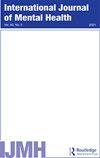2019冠状病毒病大流行期间沙特阿拉伯麻醉师精神健康症状的患病率及相关风险因素
IF 1.7
Q3 PSYCHOLOGY, CLINICAL
引用次数: 3
摘要
在2019冠状病毒病大流行期间,麻醉师参与高危干预使他们面临严重的感染风险,从而加剧了他们的心理压力。本研究旨在通过量化痛苦、焦虑和抑郁症状的严重程度来评估沙特阿拉伯麻醉师的心理健康问题。该研究是一项基于医院的横断面在线调查。使用事件影响量表-修订问卷(IES-R)评估焦虑症状,使用患者健康问卷-4 (PHQ-4)评估抑郁和焦虑症状。采用多元逻辑回归。共有296名受访者完成了调查。总体而言,分别在25.3%、29.4%和30.7%的受访者中发现了痛苦、焦虑和抑郁症状。沙特籍、单身、50岁以下、有亲戚或朋友感染COVID-19、对安全措施不满意、感到耻辱、在大流行期间吸烟、在二级医院工作的麻醉师在两项或多项心理健康症状指标上的严重程度高于其他受访者。我们的研究结果强调了沙特阿拉伯麻醉师的心理健康脆弱性。对感染控制措施缺乏信心以及污名化被认为是大流行期间出现痛苦、焦虑和抑郁症状的危险因素。本文章由计算机程序翻译,如有差异,请以英文原文为准。
Prevalence and risk factors associated with mental health symptoms among anesthetists in Saudi Arabia during the COVID-19 pandemic
Abstract The involvement of anesthetists in high-risk interventions exposes them to a serious risk of acquiring an infection and therefore exacerbates their psychological pressure during the COVID-19 pandemic. This study aimed to evaluate mental health problems among anesthetists in Saudi Arabia by quantifying the severity of distress, anxiety, and depression symptoms. The study is a cross-sectional, hospital-based online survey. Distress symptoms were assessed using the Impact of Event Scale-Revised Questionnaires (IES-R), and depression and anxiety symptoms were assessed using the Patient Health Questionnaire-4 (PHQ-4). Multivariate logistic regression was used. A total of 296 respondents completed the survey. Overall, distress, anxiety, and depression symptoms were identified in 25.3%, 29.4%, and 30.7% of respondents, respectively. Anesthetists who were Saudi, single, under 50 years old, had a relative or friend with COVID-19, were dissatisfied with safety measures, felt stigmatized, smoked during the pandemic, and worked in secondary hospitals had higher degrees of severity on two or more measures of mental health symptoms than other respondents. Our findings highlight the mental health vulnerabilities of anesthetists in Saudi Arabia. Lack of confidence in infection control measures, as well as stigmatization, were found to be risk factors for distress, anxiety, and depression symptoms during the pandemic.
求助全文
通过发布文献求助,成功后即可免费获取论文全文。
去求助
来源期刊

INTERNATIONAL JOURNAL OF MENTAL HEALTH
PSYCHOLOGY, CLINICAL-
CiteScore
3.80
自引率
20.00%
发文量
32
期刊介绍:
The official journal of the World Association for Psychosocial Rehabilitation, the International Journal of Mental Health features in-depth articles on research, clinical practice, and the organization and delivery of mental health services around the world. Covering both developed and developing countries, it provides vital information on important new ideas and trends in community mental health, social psychiatry, psychiatric epidemiology, prevention, treatment, and psychosocial rehabilitation.
 求助内容:
求助内容: 应助结果提醒方式:
应助结果提醒方式:


